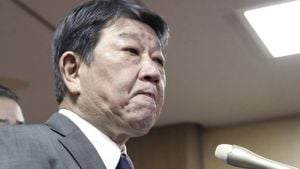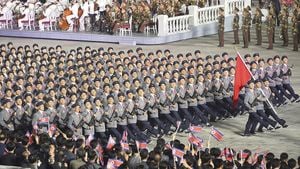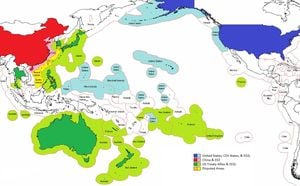Japan is known for its remarkable stability, but recent political activities have stirred up quite the tempest. The country stood at the edge of change after the surprising results of the recent parliamentary elections, where the longstanding conservative coalition lost its grip on power. Inflation, which has gripped Japan alongside financial scandals within the ruling Liberal Democratic Party, played the pivotal role, leading to growing dissatisfaction among voters.
Shigeru Ishiba had recently assumed the role of Prime Minister, embarking on his position by calling for snap elections to capitalize on his apparent popularity. This strategy, reminiscent of political gambits elsewhere, was ill-fated. Instead of securing his party’s majority, Ishiba’s Liberal Democratic Party (LDP) faced shock results. With the LDP now reduced to 191 seats from 279 and its partner Komeito down to 24, the conservative coalition fell short of the required 233 seats to maintain its majority. This turmoil has left many questioning the future of Japanese politics.
The mood among the electorate has shifted dramatically, and the results demonstrate the evident public sentiment toward rising costs of living. For decades, many Japanese citizens had enjoyed the comfort of stable or declining prices. This deflationary trend lulled voters, but times have changed, primarily following significant international events, including the war between Russia and Ukraine, which has pushed up energy prices and affected local economies.
Inflation, which economists might deem modest, presents itself as deeply impactful on everyday life. A significant portion of Japan's population, particularly the elderly, has felt the sting of inflation more than others. Nearly 30% of Japan’s citizens are over the age of 65, predominantly relying on pensions which have not kept pace with the rising costs of living. This demographic is known for its high voter turnout, which resulted in increased pressure on the government.
The financial scandals surrounding the LDP have only exacerbated the situation. Historically, the party has weathered numerous controversies, but this confluence of factors—financial missteps and inflation—has triggered widespread disillusionment. The electorate’s mood shifted rapidly, reflected through the opposition's sudden surge, lending credence to the idea of democracy's health through accountability and change.
At the heart of the current political mayhem is the question of governance. Normally, political parties bounce back swiftly to form new governments within days. This time, the equations have changed. Ishiba has less than two weeks to secure the support of smaller parties. Failure to do so may lead to chaotic political additional elections soon, as the Japanese parliament is mandated to choose its new leader within 30 days post-elections. The window to act is rapidly closing, and the stakes couldn't be higher.
Should Ishiba fail to assemble sufficient support, it may open avenues for the opposition party leaders to coalesce and form interim governing bodies. Such political maneuvers often lead to instability and uncertainty, and it wouldn't be far-fetched to anticipate another set of elections within the first half of 2025. This isn’t just important for Japan; the ripple effects could resonate throughout the region, especially considering the island nation's strategic position near China, North Korea, and Russia.
Global powers such as the United States look to Japan as one of its key allies, chiefly concerning defense and economic strategies. With heightened discussions surrounding national security, Japan’s plan to significantly increase defense spending by 2027 has gained urgency. Yet, forming a stable government appears increasingly challenging, undermining efforts required to navigate Japan's political and economic paths.
Drawing parallels to global politics, observers are noting how the rise of populism and decisive referendum results have altered political landscapes worldwide. Many are viewing Japan's recent election results as reflective of broader sentiments, hinting at lessons for other nations, particularly those grappling with economic woes. The core insight is simple: voters prioritize issues like inflation, often overlooking economic growth indicators favored by many economists. This narrative echoes sentiments felt back in the 1970s, as inflationary pressures tested governments worldwide.
Japan’s Liberal Democratic Party must now grapple with the dual challenges of forming a new government and revitalizing its public image. The path forward is cluttered with obstacles, not least the internal divisions caused by its diminished majority. Several potential leaders are now being discussed, including the right-wing politician Sanae Takaichi, who would aim to become Japan’s first female Prime Minister, and the youthful Shinjiro Koizumi, who carries the legacy of his popular father. Each candidate presents the possibility of reshaping Japan’s political future.
This tumultuous period serves as more than just domestic strife; it also carries broader geopolitical ramifications. European and American interests are closely intertwined with Japan’s strategic decisions. The recent election outcomes don't just reflect internal discontent but raise questions about how Japan will manage its foreign policy under potential economic duress and political instability.
What emerges from this chaos will shape the future of not only Japan but West Asia's geopolitical stability, underscoring how interconnected nations are amid challenges such as inflation, financial scandals, and rising tensions from neighboring countries. With significant elections on the horizon, the world watches closely, holding its breath to see whether Japan can forge stability out of the current upheaval.



